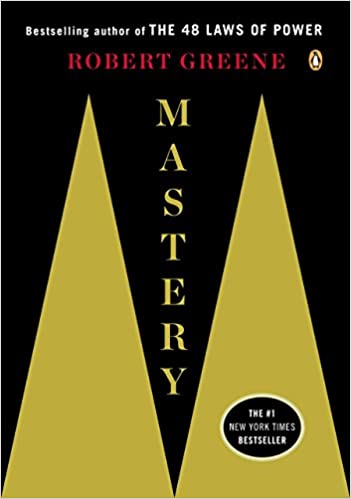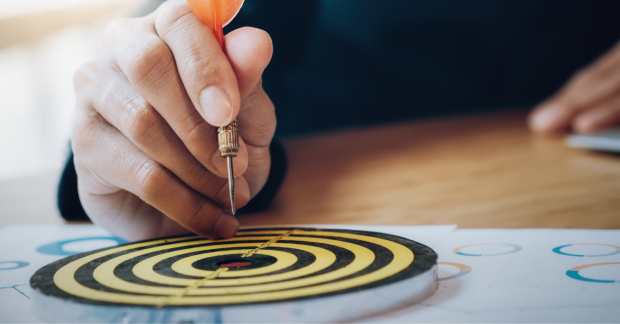Canadian journalist and five time New York Times bestselling author popularized the idea that it takes 10,000 hours of practice to master anything. Just the thought of 10,000 hours, or 416 days, is enough to steer anyone away from wanting to pick up and master a new skill.
Fortunately, according to several studies, it has been proven that it takes far less time to learn and master a new skill from scratch.
Today, we are going to take a look at how you can learn anything from scratch and master new skills in record time.

Mastery
by Robert Greene
⏱ 15 minutes reading time
🎧 Audio version available
The 20-Hours Rule
We’ve mentioned the whole 10,000 hours to master a skill rule. But, luckily, that rule has been debunked by numerous people who managed to actually master a skill in just 20 hours. It’s a massive difference from the former; however, there are things that are not taken into account in the 10,000 hours rule.
This rule is about the quantity of time practicing, not the quality. The truth of the matter is, it’s the quality that matters most. A person can practice 10 hours trying to learn one thing while it can take someone else just 2 hours. All practice isn’t equal, which is why the rule was found to be flawed.
So, how can you master a skill in just 20 hours?
Accept That You’re a Beginner
When it comes to learning a new skill, people are classified into two categories; the majority of people will have a mindset that, since they’re terrible at the skill, they will never get better at it. While the minority will be completely okay at the fact that they’re beginners and they think of it as a way to motivate themselves to improve.
It’s true that having the mindset that you’ll never get better is nothing short of toxic, but, many of us can’t help but feel that way. It acts as an emotional barrier that will stand in the way of achieving your goal and would make anyone resist new changes–changes that could lead them where they want to go.
Fear takes over their thoughts, and this is the point where most people quit. Getting over that emotional barrier is extremely important when you’re learning a new skill.
In addition to that, the most difficult part in learning a new skill is also the start. You’ll often end up feeling incompetent and that you’ll never be as good as someone else. But, you need to always have faith in yourself and your capabilities, and accept that this is only the beginning of the journey.
Prepare Yourself
A lot of people will say that they want to learn and master a new skill without having their minds set on a skill they’re passionate about or even interested in. What these people don’t know is that picking up the wrong skill is a grave mistake that can sabotage the whole process and kill your motivation to learn other new skills in the future. You have to be selective about what skill you want to learn in order to succeed in learning and mastering it.
But, how can you know if a skill is right for you when you’re not sure about what you want to learn?
Well, there are a couple of questions that you need to ask yourself before you choose a skill. Are you going to be able to use that skill in your everyday life? Does it pique your interest? When you look at individuals who already mastered the skill, do they intrigue you?
There’s no denying that you can learn practically any new skill, but if the skill is randomly chosen and doesn’t serve any purpose to you, you will find that you may lose interest along the way. You need to love the skill and the process in order to be able to persevere and be successful.
Set Your Definition of Mastering
The definition of mastering a skill differs from one person to the next. Take language learning as an example; when you start learning a new language and are now able to converse fluently with native speakers–this might be your definition of mastering a skill. Someone else might consider themselves to have mastered this skill when they’re able to watch movies in that language without the need for subtitles.
Build the Principle
When business magnate Elon Musk was asked how he was able to achieve so much in just a few years when other people spend a lifetime trying to reach less than a third of his achievements and failed, he credited his learning to a method called The Feynman Technique. This learning model focuses more on how you should learn to deeply understand and not just memorize.
When you’re first learning a new skill, you need to dedicate your time to finding resources that will help you learn the basic principle. Although the principles might be different depending on the resource, the most important thing is for the end result will always be the same.
Deconstruct the Skill
It’s very easy to get overwhelmed by the complexity of the new skill and the countless steps you need to take to reach your end goal. But if you deconstruct the skill into small manageable steps, you can focus on one part at a time and eventually reach the desired outcome.
Think of building the principle as the trunk of the tree and deconstructing the skill as the tree branches. You need to read books, understand different techniques, break them into sub-skills and identify which sub-skill is more important.
To put things into perspective, imagine if you’re working on a painting. If you see a painting done by an expert, it’s easy to get overwhelmed and think that you possibly can’t paint on the same level. But, when you start sketching the drawing, coloring the shapes, and then adding shades, you’ll find that it’s achievable to create a similar painting.
Talk To An Expert
Talking to someone who has already mastered the skill you’re trying to learn can save you a lot of time and effort. That person has already been in your position, made mistakes that you will probably make along the way, knows tips that can help you, and knows what it takes to master the skill.
It’s recommended that you seek out experts who know their way around. And, don’t be shy about asking for their advice, as they’re most likely thrilled to share their experiences with you and give you advice.
Visualize Yourself Mastering the Skill
There isn’t enough stress on how visualizing is a key to success. You might think that visualizing is nothing more than daydreaming and thus serves no purpose. What people might not know is that it actually has a proven effect on our cognitive processes like attention, memory, and planning, so making a habit of it is crucial to success.
When you visualize, you’re basically training your mind to perform in a way that will guarantee the end goal. Your mind will interpret the visualization as reality and will create new neural pathways to support that reality.
Related: How to Develop Your Ability to Learn New Skills
Avoid Getting Burnt Out
Okay, so you’ve done everything within your power to learn the new skill to the point of overworking yourself. What you’re essentially doing is causing burnout, a condition that can make it far more challenging to handle everyday tasks–let alone continuing to learn a new skill.
Getting burnt out starts with having an excessive drive to learn the skill– you’re ready to give your everything in order to learn the skill. You feel motivated and ambitious, which will undoubtedly backfire on you later on.
You push yourself to work harder, neglect your basic needs, like eating well and getting enough sleep, you stop going out and when you do, your outings feel like a burden. You start to feel stressed and hopeless as depression takes over.
Burnout is a serious condition that you have to account for when you’re doing anything, whether it’s working a new job, studying for an exam, or learning a new skill. Not getting a burnout is all about balance: balancing your needs and wants, and knowing when it’s time to take a break.
There’s no exact point at which you can say that you’ve truly mastered the skill. So, it’s important to identify and set your definition of what mastering a skill looks like to you before you start the learning process.
Additionally, it’s also equally as important to set an end goal that’s realistic, as setting an unreasonable and unattainable goal will only overwhelm you and you might end up giving up sooner than later.
What Is Snapreads?

With the Snapreads app, you get the key insights from the best nonfiction books in minutes, not hours or days. Our experts transform these books into quick, memorable, easy-to-understand insights you can read when you have the time or listen to them on the go.


